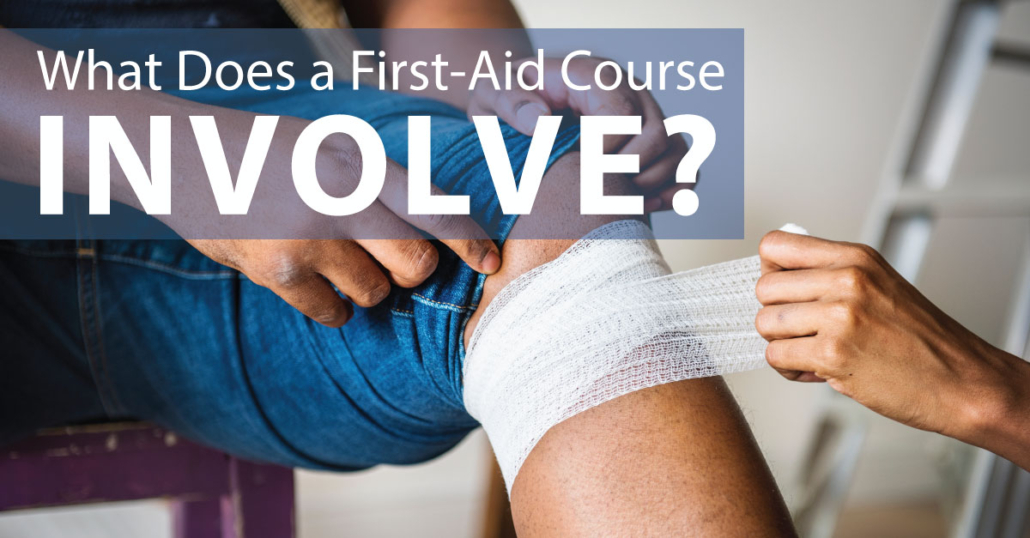Introduction
In our hectic globe, emergencies can strike without caution. Whether it's a small injury, a medical emergency situation, or a life-threatening situation, recognizing how to provide first aid can make all the difference. This is where a First Aid course enters into play. Many individuals might wonder what they can gain from such training, and this short article aims to shed light on that.
By register in a First Help and mouth-to-mouth resuscitation course, you don't simply discover bandaging wounds or carrying out CPR; you furnish yourself with invaluable abilities that could conserve lives. So, what exactly will you find out in a comprehensive program? Allow's dive into the details.
First Help Basics: What You'll Learn in a Detailed Course
Understanding Very first Aid
What is Initial Aid?
First help describes the preliminary help given to a person suffering from an injury or illness till professional medical help gets here. It includes various techniques and abilities ranging from basic wound care to lifesaving methods like mouth-to-mouth resuscitation (Cardiopulmonary Resuscitation).
Importance of First Aid Training
Why Must You Take an Emergency Treatment Course?
Taking a First Aid course is important for numerous reasons:
- Confidence: Understanding how to react in emergencies can instill confidence. Life-Saving Abilities: The capability to carry out CPR or help with choking can conserve lives. Career Innovation: Numerous occupations need accreditation in first aid. Community Obligation: Being trained ways you can assist others effectively.
Overview of CPR
What is CPR?
CPR, or Cardiopulmonary Resuscitation, is an emergency situation procedure executed when someone's heart beat or breathing has actually stopped. It incorporates upper body compressions with rescue breaths to maintain blood circulation and oxygenation up until specialist assistance arrives.

The Structure of a Comprehensive Emergency Treatment Course
What Does a First Aid Course Include?
An all-around First Aid and mouth-to-mouth resuscitation course generally covers the following subjects:
Introduction to First Aid Legal and Ethical Considerations Scene Safety Basic Life Support (BLS) CPR Techniques Choking Relief Wound Treatment Management Burn Treatment Managing Shock Recognizing Medical Emergencies Using an Automated External Defibrillator (AED)Legal Elements of First Aid
Are There Legal Ramifications Associated With Offering First Aid?
Yes, supplying first aid does carry legal responsibilities called "Good Samaritan legislations." These laws protect individuals that aid others in emergencies, gave their activities are affordable and not reckless.
Scene Safety and security: The First Step
How Do You Ensure Scene Safety?
Ensuring scene safety includes analyzing the atmosphere prior to approaching the sufferer:
- Look for possible threats (traffic, fire). Make certain it's secure for both you and the victim.
Basic Life Support (BLS)
What Duty Does BLS Play in Emergency Situation Situations?
Basic Life Assistance consists of the basics of preserving life functions until more medical help gets here. This section covers essential skills such as:

- Checking responsiveness Activating emergency solutions Performing premium upper body compressions
Advanced mouth-to-mouth resuscitation Techniques
What Are Advanced Techniques Covered in Mouth-to-mouth Resuscitation Courses?
Advanced techniques may include:
- Two-rescuer CPR Use of barrier devices for rescue breaths Special factors to consider for infants and children
Choking Alleviation Techniques
How Do You Aid Somebody Who is Choking?
Choking alleviation involves First Aid Course Adelaide 2 vital methods:
The Heimlich maneuver for adults. Back impacts and breast drives for infants.Wound Treatment Management
How Do You Appropriately Manage Wounds?
Effective injury monitoring involves:
- Cleaning the injury with saline or tidy water. Applying antibiotic ointment. Covering it with clean and sterile dressings.
Burn Treatment
What Are Effective Techniques for Dealing With Burns?
Burn therapy varies by level:
Cool the burn under running water. Cover it with non-stick dressings. Seek medical focus for severe cases.Managing Shock
How Is Shock Identified and Treated?
Recognizing shock includes trying to find symptoms like light skin, quick pulse, or complication:
Lay the person down. Elevate their legs unless there are injuries preventing this. Keep them calm until aid arrives.Recognizing Clinical Emergencies
What Types of Medical Emergencies Should You Know Of?
Common clinical emergencies include:
- Heart strikes Stroke Severe allergies Comprehending these problems aids you act quickly.
Using an Automated External Defibrillator (AED)
How Do You Utilize an AED Correctly?
Using an AED entails transforming it on, connecting pads according to images on the device, and complying with voice triggers carefully.
Importance of Constant Learning
Why Is Continual Learning Important in Emergency Treatment Training?
Continuous understanding ensures you stay upgraded on finest methods and brand-new methods in emergency treatment care.
FAQs About First Aid Courses
What Is Consisted of in a Criterion First Aid Course?- A conventional training course generally covers fundamental life assistance, wound management, choking relief techniques, and legal considerations.
- Most training courses range from 6 hours to 16 hours relying on the depth of content covered.
- Yes, upon effective conclusion of a lot of training courses, participants obtain a first help certificate, which is usually legitimate for two years.
- Yes! Numerous organizations use online programs that give versatile knowing environments while still being effective.
- Absolutely! Hands-on technique is important for grasping skills like upper body compressions and using AEDs effectively.
- Generally, there are no age limitations; nevertheless, participants have to be mentally experienced to learn these life-saving skills effectively.
Conclusion
Enrolling in a comprehensive emergency treatment course furnishes people with necessary expertise that can conserve lives throughout emergencies-- whether in your home, job, or out in public areas! From understanding standard life assistance treatments such as CPR to discovering exactly how to take care of wounds effectively or recognize indications of shock-- these training courses supply indispensable training that any individual can profit from!
As we browse through our every day lives loaded with unpredictability-- what much better way than preparing ourselves with understanding gotten from organized training sessions focused on saving lives?
In verdict-- if you're pondering using up any kind of kind of first-aid training-- never ever be reluctant! Outfit on your own today with these powerful devices since readiness really makes all the difference when every second counts!
